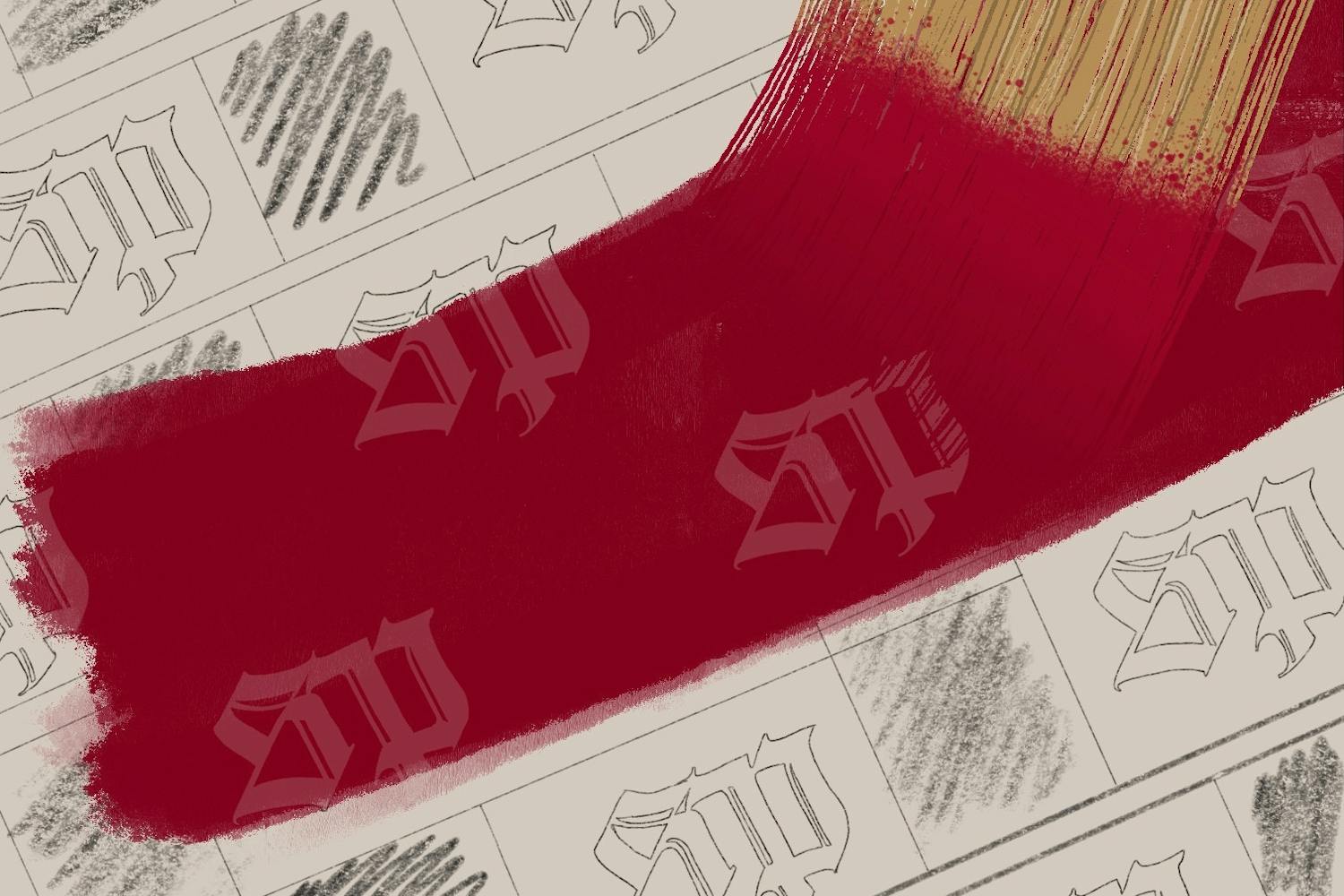Podcast reporter Diana Dudurkaewa sits down with ASU student, Nick White, to discuss his inspiration for spreading the stories of fellow veterans. He delves into his background in military service and goals for the future.
Diana Dudurkaewa: I am sitting here with not only a veteran, but an achieving ASU student who has brought sports and veteran storytelling together here at ASU. He has done this through his show on Blaze Radio and by getting the stories of Veterans heard through Twitter.
Nick White: My name's Nick White. I host the radio show "Veterans Diaries" on Blaze radio here at ASU. It's part of ASU's radio station. [I'm] twenty- five-years old. I started school last year, last January, but I'll graduate next spring because I am technically a junior.
Diana Dudurkaewa: As a veteran, how did you come to be part of ASU’s community? What drove you to choose ASU?
Nick White: I was actually going to ASU before I really got into the veteran community. I worked a job, and I really didn't want to work the job anymore, so I tried working at the Pat Tillman Veterans Center, and they told me that there was this opportunity. They knew a guy that did the radio show before, and so they offered it to me if I wanted to try and do it. I did, so I took it. That's kind of when I started to get intertwined with ASU's veteran community. Now I'm part of the outreach team over there. They also helped me intertwine with my radio show with finding different people and helping out the community as much as possible with my show by letting their stories be told.
Diana Dudurkaewa: Why is it relevant for students to gain insight into a veteran’s story?
Nick White: A big veteran and a big name here at ASU was Pat Tillman and getting to tell his story, that's kind of a staple here at ASU but there are so many veterans that are around the Valley and around the world that still have amazing stories to tell. I love being given the opportunity to let them tell their stories. I just had a guy on yesterday that was a Green Beret and he did a lot of crazy stuff. He was all over the world (and) did missions he can't even talk about. Stories like that really show that you can come out of the depths and you can fight through struggles with PTSD, with different things. There are people here to listen so all you got to do is tell your story and let it be known.
Diana Dudurkaewa: Are you currently or planning to work on new ways to contribute to ASU?
Nick White: Yeah, ASU gets a lot of recognition from their veterans. Like I said, the guy I interviewed the other day, he's on the wrestling team. That's a huge story that a lot of people jumped on. Rudy, the guy from the movie Rudy, I actually reached out to him and wanted to tell his story. That would kind of be the contributing factors to bring veterans to ASU. To go to school, so that way they can use their GI bill, get a degree, and hopefully go on to do amazing things to grow this veteran community so they're not known so much as just veterans. They're known for so much more than that. A veteran is just a piece of what they've done in their life.
Diana Dudurkaewa: What’s your story as a veteran?
It goes back to when I first started college, when I was 18. I took a baseball scholarship to the University of New Mexico (and) decided to go there. I didn't really like it, so I came back here and played at a community college. Again, didn't really like it, so I decided that I wanted to do something different, and every male member in my family has been in the military since the Revolutionary War, except for one. And he was not allowed to because he had a knee issue. I really wanted to keep that family tradition going. I was given the opportunity to join an airborne unit. When I left, I gave up baseball. I left, went to basic training and advanced individual training. Then I went to airborne training. That was kind of the culmination. That was what I wanted to do, jump out of airplanes.
From there, I was stationed in Italy. I was there for three and a half years. I had a blast. I got to travel all over Europe and trained with the different nations. We trained with Greeks, with the Italians, with Germans, with the Polish, with Hungarians–all different types of nations. The really cool thing was learning everyone's different cultures and seeing how they operated. Like for example, in Greece everybody has to join the military right out of high school and do at least two years, and then they can get out or they can stay in.That was really cool to learn about that and just to see all the different places around the world.
We were in Ukraine for two months, right after Russia kind of went in and decided that they wanted to mess around over there. We were on the western side and you got to see like how poor some of these countries are and Ukraine's no different. I always knew I wanted to talk sports and be kind of in the media realm. I knew that I was going to have the GI Bill. When I got out, I immediately applied to a couple of different schools including Missouri and ASU. (I) decided to stay at home cause I'm from here. Then from there, I've kind of just taken off, and, like I said in the question before, I just kind of intertwined my way into the veteran community here at ASU.
Diana Dudurkaewa: How does sports and the stories of veterans coincide?
Nick White: A huge thing with military members is the brotherhood and the camaraderie, and the same goes with sports. You have to go through hard times in both. Whether in sports, its training camps or losses. If it's in the military, being away from your family, having brothers that are there 24/7, so trying to link those two together.
A lot of veterans have played sports, so they've seen both sides, and they love to talk about it because in certain jobs and in certain things of the military they have to be athletic. Infantry men have to be able to run. They have to be able to carry a lot of weight. Most of them have played, for instance, football or baseball. They know what it means to be in shape and that's very huge because in the military you have to take a physical fitness test and everything like that. Fitness and the brotherhood really interlock sports and veterans.
Diana Dudurkaewa: For the State Press, I'm Diana Dudurkaewa
Previous episodes:
State Press Places: The new Green Leaf Art Gallery in Phoenix
Dorks Estate: Desert WAVE, ASU's first all-female underwater robotics team
Dorks Estate: Augmented reality technology makes automated medical visits possible for students
Reach the reporter at ddudurka@asu.edu and on Twitter @DianaPress55.
Like State Press on Facebook and follow @statepress on Twitter.




